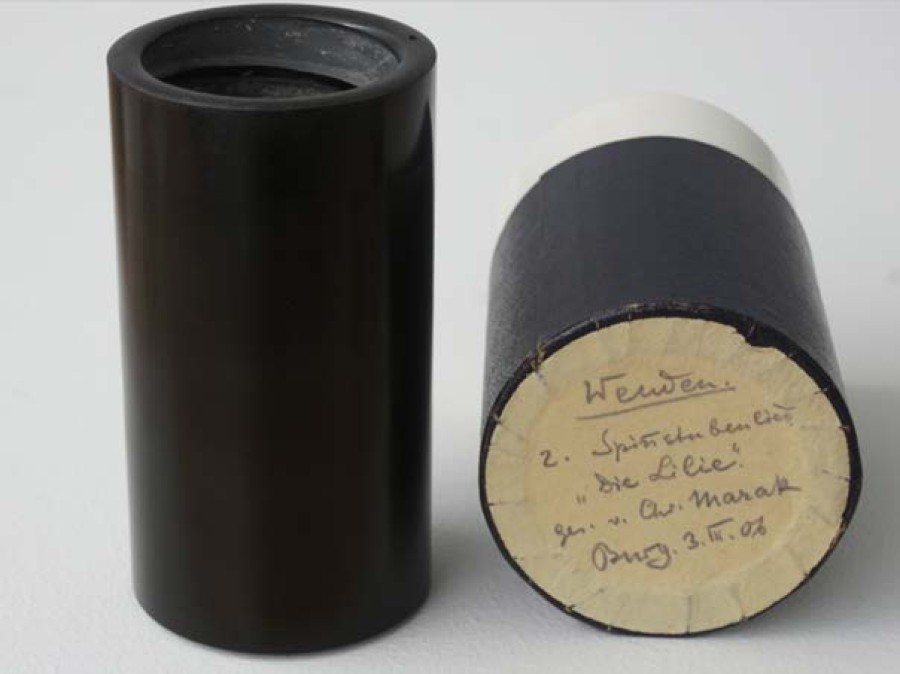Sounds in Wax: Musicology, Linguistics, and the World as a Resource

Photo: Albrecht Wiedmann, Phonogramm-Archiv Berlin
This lecture focuses on the Berlin Phonogramm-Archiv, founded in 1900, and its subsequent strategy of collecting sound recordings of languages and music from a wide range of world regions. But the archive also embraced the world as a resource in yet another respect: the daily production of phonograph cylinders required large quantities of wax and various other materials that depended on a global system of material supply—including Brazilian carnauba wax and montan wax from German lignite mines, the extraction of which caused environmental damage and deprived local populations of their livelihoods. As I show, this use of material resources resonated in many ways with the agenda for the study of cultural resources developed at the Phonogramm-Archiv during the eras of the German Empire, World War I, German colonialism, and the Weimar Republic. In addition, the production of the wax cylinders provided members of the archive with extensive knowledge of materials science and chemistry, which in turn influenced their methods of analyzing and understanding language and music.
Additional Reading
• Supplied Knowledge: Reconsidering the Resources of Epistemic Tools, Focus Section, edited by Viktoria Tkaczyk and Christine von Oertzen. Isis: A Journal of the History of Science Society, 114/2, 2023.




